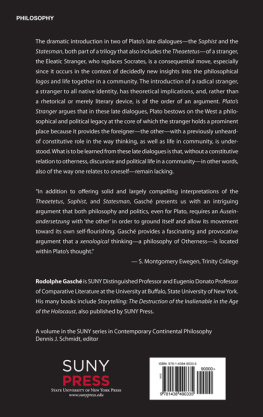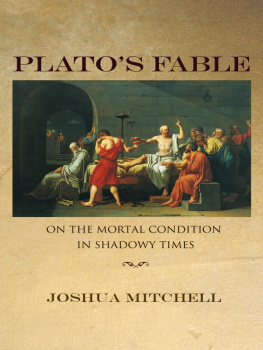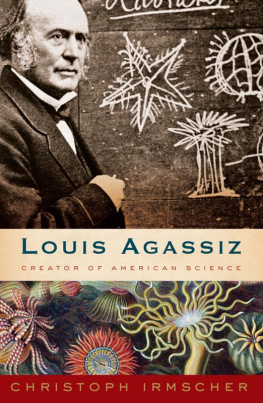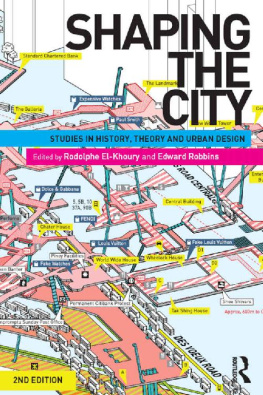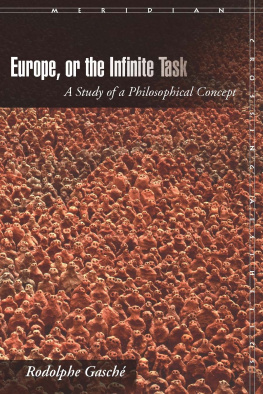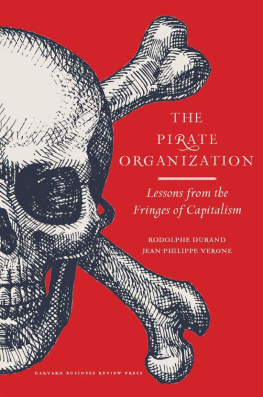Rodolphe Gasch - Platos Stranger
Here you can read online Rodolphe Gasch - Platos Stranger full text of the book (entire story) in english for free. Download pdf and epub, get meaning, cover and reviews about this ebook. year: 2022, publisher: State University of New York Press, genre: Romance novel. Description of the work, (preface) as well as reviews are available. Best literature library LitArk.com created for fans of good reading and offers a wide selection of genres:
Romance novel
Science fiction
Adventure
Detective
Science
History
Home and family
Prose
Art
Politics
Computer
Non-fiction
Religion
Business
Children
Humor
Choose a favorite category and find really read worthwhile books. Enjoy immersion in the world of imagination, feel the emotions of the characters or learn something new for yourself, make an fascinating discovery.
- Book:Platos Stranger
- Author:
- Publisher:State University of New York Press
- Genre:
- Year:2022
- Rating:5 / 5
- Favourites:Add to favourites
- Your mark:
- 100
- 1
- 2
- 3
- 4
- 5
Platos Stranger: summary, description and annotation
We offer to read an annotation, description, summary or preface (depends on what the author of the book "Platos Stranger" wrote himself). If you haven't found the necessary information about the book — write in the comments, we will try to find it.
Platos Stranger — read online for free the complete book (whole text) full work
Below is the text of the book, divided by pages. System saving the place of the last page read, allows you to conveniently read the book "Platos Stranger" online for free, without having to search again every time where you left off. Put a bookmark, and you can go to the page where you finished reading at any time.
Font size:
Interval:
Bookmark:

Platos Stranger
Platos Stranger
An Essay
Rodolphe Gasch

Published by State University of New York Press, Albany
2022 State University of New York
All rights reserved
Printed in the United States of America
No part of this book may be used or reproduced in any manner whatsoever without written permission. No part of this book may be stored in a retrieval system or transmitted in any form or by any means including electronic, electrostatic, magnetic tape, mechanical, photocopying, recording, or otherwise without the prior permission in writing of the publisher.
For information, contact State University of New York Press, Albany, NY
www.sunypress.edu
Library of Congress Cataloging-in-Publication Data
Name: Gasch, Rodolphe, author.
Title: Platos stranger : an essay / Rodolphe Gasch.
Description: Albany : State University of New York Press, [2022] | Series: SUNY series in contemporary continental philosophy | Includes bibliographical references and index.
Identifiers: LCCN 2022005553 | ISBN 9781438490335 (hardcover : alk. paper) | ISBN 9781438490359 (ebook)
Subjects: LCSH: Plato. Dialogues. | Other (Philosophy) | Strangers.
Classification: LCC B395 .G226 2022 | DDC 184dc23/eng/20220706
LC record available at https://lccn.loc.gov/2022005553
10 9 8 7 6 5 4 3 2 1
SUNY series in Contemporary Continental Philosophy
Dennis J. Schmidt, editor
For Samuel Weber
Philosophy, as the Greek heritage of the West, comes into being with Plato. The self-questioning associated with Socrates was instrumental in laying the ground for the attempt to find a way out of the one-sided and bipolarly opposite reflections by earlier thinkersespecially the Ionians and the Eleaticson what is. The very form of philosophical reflection beginning with Plato involves such self-criticism in a fundamental manner. Of course, this does not mean that Platonic philosophy can simply be reduced to such self-criticism, but the establishment of the specific topoi that make up this philosophy, especially after Socrates turn away from the philosophy of nature, is intrinsically tied to it. However, although it is broadly recognized within the living tradition of the Platonic legacy in the West, self-criticism has been a rare commodity in its history. Nevertheless, some of Platos dialogues have bequeathed on the West an even more formidable challenge: the challenge of not only being open to criticism from strangers, but allowing, or rather explicitly inviting, criticism of oneself by a stranger. If self-criticism is a rare thing, openness to such an unheard-of request is an even rarer thing. It presupposes tying, in a constitutive way, ones own identity to the intervention of a stranger, which in the same breath bestows upon him or her a unique status. Yet, this is precisely what is staged in the Sophist and the Statesman, two late dialogues of Platothat is, in works that are an integral part of the philosophical corpus of the Western tradition. Thus, this makes self-criticism, and the relation to oneself as one implicating otherness, an essential feature of Western philosophy. Self-criticism demands that one be other to oneselfultimately, a stranger to oneselfand thus prepares the ground on which a foreigner or stranger can be invited to accomplish what normally one shies away from doing, that is, critically uprooting oneself. Undoubtedly, the Western tradition has not always lived up toor, rather, has more often than not ignoredthis unprecedented beginning in Greek thought at its own core. But, I hold, when in the Sophist and then again in the Politikos Socrates withdraws and falls silent, leaving the word to the xenos eleatesa radical stranger, since nothing whatsoever is known about him except that he is from Elea and hence, as the occasion demands, is familiar with Eleatic thought, but is not in any way necessarily an adherent of Parmenides himselfSocrates (meaning also Plato) allows a stranger to call into question the foundations of all Greek thought hitherto, and in particular one of its several tribal streams, that is, the thought of Parmenides. With the Sophist, Greek philosophy becomes grounded on what the Stranger himself, though denying itthat is, also affirming itcalls a parricide, the parricide of the patrikos logos, father Parmenides, one of the major fathers of philosophical thought in Greece so far. Although one may argue that the new way of philosophizing sketched out by the Stranger in the two dialogues where he heads the discussion (namely, his doctrine of the greatest kindsthat is, of the minimal intelligible building blocks of philosophical thinking and speechand his discussion of the nature of the statesman) is not entirely new, since it has some antecedents in earlier Platonic dialoguesparticularly in the Theaetetus, as we will seethe dramatic dimension of having a stranger explicitly develop a conception of philosophizing that is other than native, and that breaks with any native authority, has in all its radicality to be taken seriously.
The Theaetetus, Sophist, and Statesman form a cycle: the dialogues take place over two consecutive days at the same location, and the protagonists remain identical throughout, except for a stranger who joins them for the last two discussions, in which he figures as the principal examiner, thus replacing Socrates, who remains silent throughout both. The topic of the first dialogue concerns the nature of knowledge. Attempting to answer Socrates question of what knowledge is, Theaetetus proposes three definitions: knowledge is perception; knowledge is true opinion; and, finally, knowledge is true opinion with an account. Socrates refutes the first sensualist definition as self-contradictory, in that it implies that one can simultaneously know and not know something. But in the course of the examination of this definition, both Socrates and the young Theaetetus arrive at the conclusion that, rather than being generated in sense-perception, knowledge is generated by the soul, which highlights what is common to sense-perceptions and its objects. The second thesisthat knowledge is true opinionis found lacking because it is unable to explain satisfactorily how false opinion arises, a question intrinsically intertwined with it. The third attempt at defining knowledgeas true opinion with an account or an explanationfalls short of its expectation as well: indeed, if giving an account means only to express in words, to enumerate the elementary parts of a known thing, or to furnish the differential mark of some particular thing, this is not sufficient to define knowledge if knowledge is not primarily to be about sensible objects, but instead about what the soul focuses on as what is common to all things.
Since the question of what a philosopher is has been raised at the beginning of the Sophist, Socrates asks the Stranger in this dialogue to elaborate on the differences of the philosopher from figures such as the sophist, the statesman, and the madman, under whose appearances he manifests himself to the common folk in the cities. In the Sophist, the question of knowledge raised in the previous dialogue is pursued not only with regard to the knowledge in which the sophist pretends to excel, but also by way of showing knowledge to consist in the definition of its object: that is, in finding, through a process of division, the genre or class to which its object belongs. In the Statesman, the Stranger makes a similar attempt at defining statesmanship. Before moving on, however, let me first provide a succinct description of what the
Font size:
Interval:
Bookmark:
Similar books «Platos Stranger»
Look at similar books to Platos Stranger. We have selected literature similar in name and meaning in the hope of providing readers with more options to find new, interesting, not yet read works.
Discussion, reviews of the book Platos Stranger and just readers' own opinions. Leave your comments, write what you think about the work, its meaning or the main characters. Specify what exactly you liked and what you didn't like, and why you think so.

